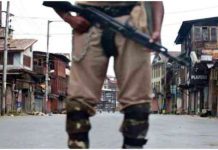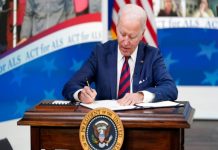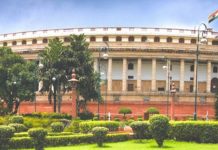Once again after 34 years, our nation has a new educational policy of five plus three plus three plus four. The policy is simply like a new wine in an old bottle having replaced the old Education pattern of ten plus two plus three with few cosmetic changes here and there. Can you do addition” the White Queen asked. “What’s one and one and one and one and one and one and one and one and one and one. “I don’t know”, said Alice. “I lost count”.
This passage from the second of the Alice books is a suitable epigraph for the discussion of the new education pattern of school and college studies, that is being given high priority in our programs of educational change. It expresses adequately the bewilderment that the change has introduced in certain quarters. It however, ignores the cynicism that fills the minds of some who are charged with the task of implementing the reform. Unfortunately, the ground reality is that we keep changing, but nothing really changes.
One in four elementary school students in the country can’t read or write basic text even ten years since the implementation o the Right to Education Act. This startling revelation is part of the National Education Policy 2020, which says large proportion of students in elementary schools have not attained foundational literacy and numeracy and this number is set to double soon unless the country acted now. The policy seeks out every literate Indian to teach one student each how to read and write. India’s elementary school going population is 20 crore. An estimated 5 crore children currently in elementary schools can’t read , write and comprehend the basic text and the ability to carry out basic addition and subtraction with Indian numerals. The policy states that if action is not taken soon, over the next few years we may lose 10 crore or more students from the learning system to literacy. The policy shows ways to achieve the foundational literacy and numeracy goals , including the promise that the govt. would encourage community participation for the purpose. “If every literate member of the community can commit to teaching one student how to read and write, it would change the country’s landscape very quickly” says the document.
Being a teacher for the last more than four decade, I have closely watched and observed the functioning of our schools, colleges and universities, both govt and private ones. The Ministry of Education has a habit of wistfully talking of the wonders it would perform if only Education were a Central responsibility, or leastways a subject in the Concurrent List for legislation under the Constitution. Despite the considered recommendation of the Commission to the contrary, Mr. M C Chagla during his tenure as Minister of Education, continued to maintain that “we made a serious mistake, when we drafted the Constitution in making education a State subject”. He even advanced the thesis that the present arrangement was a legacy of the British “who wanted only clerks to administer the country”. Evidently he ascribed our education’s lack of ambition to its being controlled by small men in the State capitals.
To my mind, two maladies afflict our educational processes: One is that we take too long to do too little. The other is that, in most of our learning programs, we underestimate the capacity of the learners. An examination of our programs of language studies would establish this fact quite clearly. Whatever is being done in 11 years of education can be done in 10 years. What is being done in four years of the degree course in college can be done in three years. To do this, we will not have to hustle the students, or put them into an academic pressure cooker. All this will require a review of prevailing curricula, and the chopping off of which hat is peripheral and largely wasteful of the learner’s time.
For a secondary school course, the essentials are language skills, mathematics with some training in critical thinking, and an introduction to the world of values, through programs in humanities and social studies. To accomplish these ends, uniform curricula are neither needed nor advisable. The system should indicate the proficiencies to be attained, and set model syllabi, with the option to schools to vary them so as to achieve better and quicker results. Unfortunately, much harm is done in our schools by teachers who have stopped learning, and who have the notion that the paths they traversed while young are the only reliable paths to learning. To this inertia can be added the fervour of curriculum makers whose idea of progress and improvement is to add more items to the traditional syllabus, and to add new subjects. No wonder there is wide spread lament over the learning load and the teaching load. The most vital reform needed both in schools and colleges is to change the symbol of learning from the donkey on our back to a charger we ride to the realms of unknown.
The traditionalists would claim with some justification, that even existing curricula provide the framework for imaginative teaching and learning. However, the prescribed curricula serve as blinkers to shut out any large perspectives. The eventual outcome reminds me of what a Harvard President said when his university instituted the new B.Sc. degree: “We don’t guarantee that the B.Sc. would know any science. But we do guarantee that he does not know any Latin”. The present procedures for revising curricula in our colleges and universities don’t hold out any promise of radical transformation. The most that curriculum makers are currently doing is to cut out a few obsolescences and add a few topics that are on a way to obsolescence. We hardly pay any attention to the conceptual grounds of knowledge in the sciences and social sciences, which would suggest changes in the informational content of the curricula as time passes. I know of a university where the innovative proposals relating to the life sciences were thwarted by vested interests in the traditional departments of botany and zoology.
We have reached a stage in our educational progress or stagnation, when it is imperative that we should look around for alternatives to the system we have been living with. In doing so, we don’t have to begin by denouncing the existing system in the manner that is fashionable among unthinking people.. New alternatives in the Education are tried by people who have already made some exploration of the limits of the possible under the existing system The fervour with which a uniform pattern for the duration of courses in high school, higher secondary school and college is now being prescribed, might seem to rule out the possibility of any diversity within the system.
It is wise not to expect from schools and colleges what they can’t yield. There is also wisdom in recognising that designing the right sort of curriculum for the right stages in the educational system is one of the ways in which we could bring about the transformation of society.In this, what we do with the two years following the high school will be crucial. We must quicken the pace of learning, chopping off the non- essentials and anticipate the present degree course. This can be done without any sort of academic dehydration.
Policy makers should pay attention to Mr. K L Joshi’s suggestion that our polytechnics, industrial training institutes and other skill oriented establishments, should be made part of the pattern that we now seek to interpose between high school and the first degree course. The purely technical courses could be given new academic dimensions, just as the traditional academic courses could be enriched with vocational programs. This is the stage at which National Service Programs could be taken up as an integral part of the curriculum. We must abandon degree requirements for most jobs in the government. We must organise a network of national external examination, to supplement internal assessment by individual institutions, so as to ensure that the freedom to experiment and to innovate, is exercised.
It is difficult to see how the current enthusiasm for job orientation and for resorting to non formal learning programs, could be translated into action unless there is freedom for individual institutions, individual teachers and learners to innovate and to experiment. In regard to Higher Education, the UGC lays on the Central Government the responsibility for the determination and co- ordination of standards. The role of authority should be to promote innovation and experiment, and make information relating to such ventures available to all institutions so as to encourage a spirit of mutual emulation. This would bring about the true liberation of learning that we are now in urgent need of.
Professor Anil Bhatia (retd) was working with Department of English, DN College, Hisar. Views expressed are his own
letters@tehelka.com












